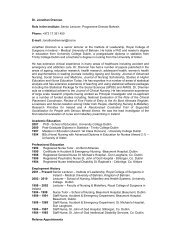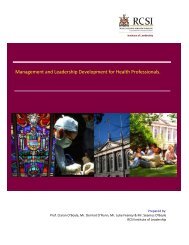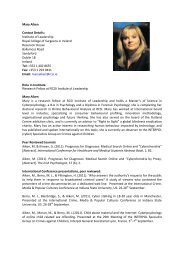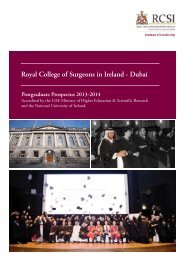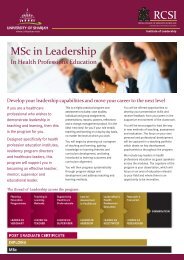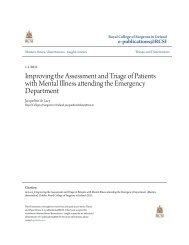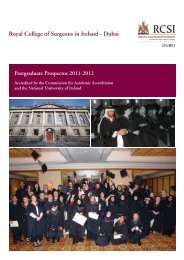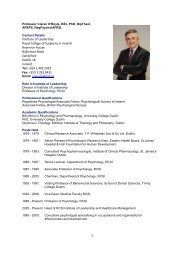Implementation of Safe Surgery Saves Lives initiative in Ahmed ...
Implementation of Safe Surgery Saves Lives initiative in Ahmed ...
Implementation of Safe Surgery Saves Lives initiative in Ahmed ...
- No tags were found...
Create successful ePaper yourself
Turn your PDF publications into a flip-book with our unique Google optimized e-Paper software.
healthcare staff by produc<strong>in</strong>g the Seven Steps to Patient <strong>Safe</strong>ty guide (NPSA, 2004). The sevensteps described are:• Build a safety culture.• Lead and support your staff.• Integrate your risk management activity.• Promote report<strong>in</strong>g.• Involve and communicate with patients and the public.• Learn and share safety lessons.• Implement solutions to prevent harm.To help <strong>in</strong> safety build<strong>in</strong>g WHO published Patient safety curriculum guide for medical schools <strong>in</strong>2009. Where the safety problems classified to: (i) the wrong patient <strong>in</strong> the operat<strong>in</strong>g room (OR);(ii) surgery performed on the wrong side or site; (iii) wrong procedure performed; (iv) failure tocommunicate changes <strong>in</strong> the patient‟s condition; (v) disagreements about stopp<strong>in</strong>g procedures;and (vi) failure to report errors (WHO, 2009).Team work, communication and empowerment <strong>of</strong> staff will help junior doctors or nurses whorarely speak up when they see a senior cl<strong>in</strong>ician about to make an error; this is universal andapplies to all cultures to vary<strong>in</strong>g degrees. However, patient safety pr<strong>in</strong>ciples require thateveryone is responsible for patient safety and should speak up even when they are lower <strong>in</strong> themedical and health-care hierarchy (WHO, 2009).2.5 Nontechnical skills and human factorsThere is grow<strong>in</strong>g evidence that poor non-technical skills can be a major cause <strong>of</strong> error <strong>in</strong>healthcare. Non-technical skills, or human factors, play an important role <strong>in</strong> improv<strong>in</strong>g teamfunction and improv<strong>in</strong>g these skills can drive improvements <strong>in</strong> patient safety and outcome. This19



